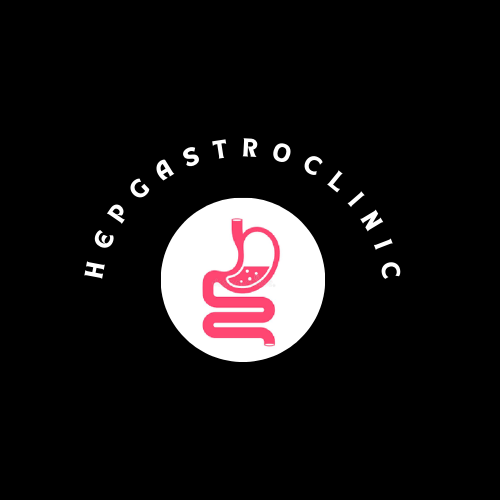What are the best Supplements for Immunity Support in 2022?
Whether you are
looking for a natural way to boost your immune system or want to support your
health during times of stress, there are plenty of supplements available to
help.
In this
article, we will look at the 14 best immunity supplements for 2022. These
supplements include a variety of ingredients and have been shown to be
effective in boosting immunity.
It’s that time
of year again – cold and flu season. And if you want to make sure you stay
healthy this year, you need to arm yourself with the best supplements for
immunity support.
Vitamin C
Vitamin C is
perhaps the most well-known and well-studied of all immune system boosters. It
is a water-soluble vitamin that is found in many fruits and vegetables, and it
is essential for healthy immune function.
Vitamin C may
help protect your immune system. In addition, this vitamin helps your body form
vessels, cartilage, and collagen. It also works in forming connections between
your cells, which may help you fight some illnesses better. Citrus fruits are
the best source of this vitamin. Other sources include berries, papaya,
spinach, and kale.
Vitamin D
Vitamin D3 is one of the best supplements
for immunity support because it helps the body absorb calcium and magnesium.
These minerals play a vital role in maintaining bone density and muscle mass.
They also help with the absorption of iron and zinc, two other essential minerals.
Fitting vitamin
D into your diet and lifestyle is essential for many amazing, good health-related
benefits. Getting enough vitamin D is a struggle since there's limited natural vitamin D in foods, so depends heavily on supplements and increased exposure to
the sun. How much you should take depends on your personal health history, but
a firm upper limit is 400 IU per day.
Vitamin D
deficiency disrupts the immune system, making the patient more susceptible to
recurrent bacterial and viral infections, as well as some immune diseases and
allergic diseases, such as chest allergy, where scientific research has proven
a link between vitamin D deficiency and nasal allergy, and that compensating
for this deficiency leads to an increase in the patient's response to allergy
drugs.
Vitamin A
Animals like
cattle produce milk full of vitamin A, and even the grass they eat has vitamin
A. As for humans, red peppers, carrots, squash, and cow’s milk contain vitamin
A. Aside from improving eyesight, vegetables and animal sources of vitamin A
are also able to fight infection.
Vitamin B6
Vitamin
B6 is a water-soluble vitamin that helps to keep the immune system strong and
helps hair and skin to grow. It also aids in cell reproduction, the production
of red blood cells, and the production of white blood cells and T cells.
Several of these functions also involve immune elements, including interleukin
2 production. Vitamin B6 has also been linked to enhancing the way cells react
to stress, so doing this essentially bulks up the body's immune system.
Chicken, salmon, tuna, chicken, leafy greens, and chickpeas are rich sources of
pyridoxine. Vitamin B6 deficiency can alter mood and reduce immune system
strength.
Vitamin E
Vitamin E
occurs in foods in various amounts. The amount of high quality improves the risk
of cardiovascular disease, prostate cancer, and Alzheimer's disease. On the
other hand, detoxes of foods high in vitamin E are best achieved by the dietary
supplementation of this nutrient. As delicious as the latter sounds, the best
consumption of vitamin E is, most likely, food with natural sources of nutrients.
Common good choices include avocados, almonds, and wheat germ.
Zinc
Zinc has been
shown in scientific studies to increase the production and maturation of
lymphocytes, which aids in the fight against viral diseases such as the common
cold, covid 19, and others, as taking zinc early in the event of a cold reduces
the severity and duration of symptoms. It is found in many foods, including
meat, poultry, fish, shellfish, nuts, and seeds.
Probiotics
Probiotics are beneficial bacteria
found in humans’ and animals' digestive tracts. For years, scientists have been
studying the benefits of probiotics.
There are millions of probiotic
species in the world, and each one is distinct. These beneficial bacteria aid
the body in maintaining a healthy bacterial balance and preventing infection
from harmful bacteria.
Probiotics have been shown in
studies to help maintain and strengthen the immune system, even in patients
with immune-suppressing diseases like cancer. These probiotic cells can help
prevent fungal and bacterial infections, fight viruses, and support the
digestive system, allowing the body to absorb nutrients more effectively.
Probacterium paracasei, a type of
probiotic discovered by scientists, may protect against Listeria bacterial
infection. According to a 2017 review, there is more evidence that probiotics
can treat or prevent Listeria infection. If this is true, it is preferable
because antibiotic treatment can harm and disrupt the balance of the gut
microbe population.
Omega 3 Fatty Acids
Omega-3 fatty acids are essential
nutrients that play an important role in maintaining good health. These facts
are found in fish oil and flaxseed oil. They are also found in some nuts and
seeds.
Omega-3
polyunsaturated fatty acids (3-PUFA) are important components of cell membranes,
and they are sometimes called essential fatty acids because we require them as dietary
supplements. The benefits of consuming these essential fatty acids improve the
immune system and cell wall strength.
According to one study published in the Journal of Leukocyte Biology in 2013, omega-3 improves the function of B cells. B cells are a type of white blood cell that is produced to combat pathogens and diseases.
Magnesium
Magnesium is one of the most abundant
minerals for maintaining health. It helps in several processes in the body by
helping to maintain muscle function, nerve function, blood pressure regulation,
bone strength, and energy metabolism. People most often consume leafy green
vegetables as the primary source of magnesium.
While magnesium supplementation has been
shown to improve subjects' overall health, it also promotes the multiplication
and spread of diseases. Tests on mice found that when the mice were given a
magnesium-supplemented diet, their resistance to flu viruses improved, while
regular diet mice fared poorly.
Scientists have discovered that T cells can
only eliminate abnormal or infected cells efficiently in a magnesium-rich
environment.
Magnesium reduces inflammation in the body. It also reduces the production of inflammatory proteins while increasing anti-inflammatory proteins. When members of the Vitamin D and Magnesium supplementation research teams combined their knowledge to collectively study their patients, they found these two nutrients to be the foundational pillars of their work.
Curcumin
This powerful
anti-inflammatory supplement is the main active ingredient in turmeric root and
has been shown to bestow numerous health benefits. On the research side,
there have been more than 120 human clinical trials showing the effectiveness
of curcumin. Studies show that it helps relieve pain and inflammation from
arthritis, heart disease, autoimmune disease, and diabetes. On the more
practical side, curcumin purifies your body and stimulates your gut bacteria,
while blocking inflammatory cytokines, which support your immune health. It
also improves the health of your gut. Because curcumin is not well absorbed, I
recommend supplementing with 1,000 milligrams per day with food.
Echinacea
Echinacea is a
flowering plant that does have some positive effects on the immune system.
Research has shown that taking echinacea every day may help prevent colds in
49.9% of those who take the supplement and shorten the duration of cold
symptoms by more than one and a half days.
The National
Institutes of Health says that the immune-enhancing effects of echinacea help
reduce internal inflammation and so might help prevent COVID-19 infections.
Studies suggest that echinacea contains antioxidants that may protect against
stress and burnout, reducing inflammation and helping the body to sharpen its
response to infection. The health benefits of echinacea appear to work as well
at a non-immune-stimulating dose. The daily recommended dose of encapsulated
echinacea is 300 milligrams two or three times a day for adults over 12 years
of age.
Elderberry
The elderberry
plant has compounds that provide body immune system boosters and may have
radical-scavenging and other anti-inflammatory properties as well. They are
often used as remedies for colds, the flu, and sinus infections.
In one study
people who drank a bottle of elderberry syrup four times a day reduced their
flu symptoms four days earlier than people who drank a placebo. Another study
found fluid elderberry extract was able to help fight viruses, including
COVID-19. In the latest Update from the Swiss OTC Medicine Monitors Agency,
elderberry was noted: "to have chemical compounds that possibly kill or
inhibit viruses"
Researchers
believe that elderberries have anti-infective properties due to their
phytochemicals, which stimulate HIV-infected cells to release cytokines, a class
of chemical messengers that serve as communication among immune cells. The
messengers lead them to fight off the infection faster.
Garlic
Recent research
suggests that taking a daily garlic supplement reduces the number of colds a
person contracts by 63%, and it is also associated with a reduced the size of
their colds and their duration of illness. The same research found the average
duration of the illness also drops by 70%, nails that the average length of
cold symptoms... drop by 70% when people are taking a daily garlic supplement.
Garlic is a great source of vitamin C, vitamin B6, and selenium which are all immune
boosting.
Garlic
supplements are readily available and ideal, but they are not the easiest
things to consume. The preferred intake of garlic is a fresh clove, which
starts a powerful reaction in the body and can work within an hour. However, a
quantity of 300 milligrams of dried garlic powder, two to three times a day, is
sufficient in a solid pill. People can also double the amount of aged extract,
6 grams daily, to attain a full range of daily benefits.
Selenium
The natural
compound selenium is required by the immune system to perform its many
essential tasks. Since adequate selenium can't be manufactured by the body, any
selenium consumed from food should primarily be obtained from foods rich in the
element, such as selenium-rich foods like Brazil nuts. Selenium is also present
in healthy doses in more widely consumed foods such as tuna, ham, turkey, and
cottage cheese.
Can vitamin D help treat COVID-19?
Vitamin D has
not been shown to be an effective treatment for COVID-19. People should speak
with their healthcare provider if they have a vitamin D deficiency since it can
lead to a weakened immune system and other health issues.
What are the best amino acids for immunity support?
Amino acids are
obtained by breaking down dietary protein. Essential amino acids are those that
the body cannot produce and must therefore be obtained through diet. The body
can synthesize non-essential amino acids. However, when the immune system is
under stress, the body cannot keep up with the demand for certain amino acids,
so they are classified as conditionally essential, requiring dietary sources to
meet the demand.
Essential amino
acids, especially Leucine, are very important for a healthy immune system for:
• Regulating
the hormone levels as building blocks
• Increasing
performance in the brain and nervous system
• Replenishing
vitamins, minerals, and antioxidants
• Repetition
and longevity in the memory and immune system
What Are Some Guidelines for Boosting Immunity?
Here are the best guidelines for boosting your immunity.
Summary
The human body has an amazing ability
to heal itself when given the right nutrients. But sometimes our bodies need
extra help to keep us strong and healthy. That’s where supplements come in.

.png)


